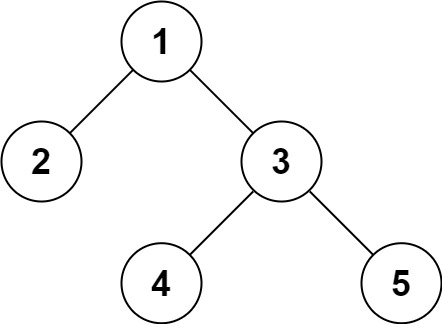serialize-and-deserialize-binary-tree¶
Try it on leetcode
Description¶
Serialization is the process of converting a data structure or object into a sequence of bits so that it can be stored in a file or memory buffer, or transmitted across a network connection link to be reconstructed later in the same or another computer environment.
Design an algorithm to serialize and deserialize a binary tree. There is no restriction on how your serialization/deserialization algorithm should work. You just need to ensure that a binary tree can be serialized to a string and this string can be deserialized to the original tree structure.
Clarification: The input/output format is the same as how LeetCode serializes a binary tree. You do not necessarily need to follow this format, so please be creative and come up with different approaches yourself.
Example 1:

Input: root = [1,2,3,null,null,4,5] Output: [1,2,3,null,null,4,5]
Example 2:
Input: root = [] Output: []
Example 3:
Input: root = [1] Output: [1]
Example 4:
Input: root = [1,2] Output: [1,2]
Constraints:
- The number of nodes in the tree is in the range
[0, 104]. -1000 <= Node.val <= 1000
Solution(Python)¶
class Codec:
def serialize(self, root):
"""
Encodes a tree to a single string.
:type root: TreeNode
:rtype: str
"""
if not root:
return "[]"
res = [root.val]
q = collections.deque([root])
while q:
front = q.popleft()
res.append("null")
if front.left:
q.append(front.left)
res[-1] = front.left.val
res.append("null")
if front.right:
q.append(front.right)
res[-1] = front.right.val
while res and res[-1] == "null":
res.pop()
return ",".join(map(str, res))
def deserialize(self, data):
"""Decodes your encoded data to tree.
:type data: str
:rtype: TreeNode
"""
if data == "[]":
return None
vals = data.split()
root = TreeNode(vals[0])
return root